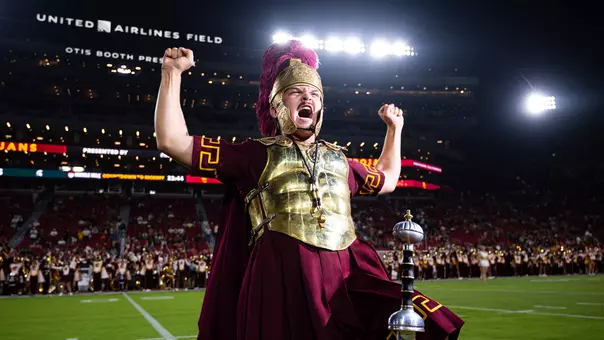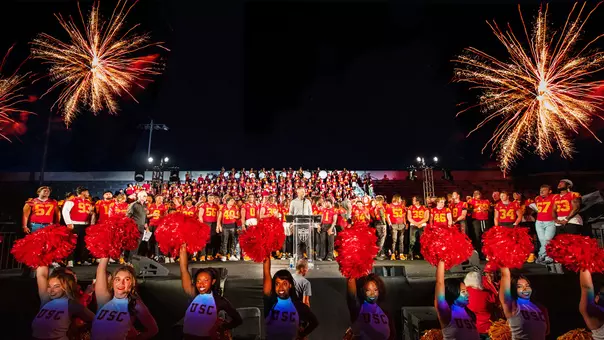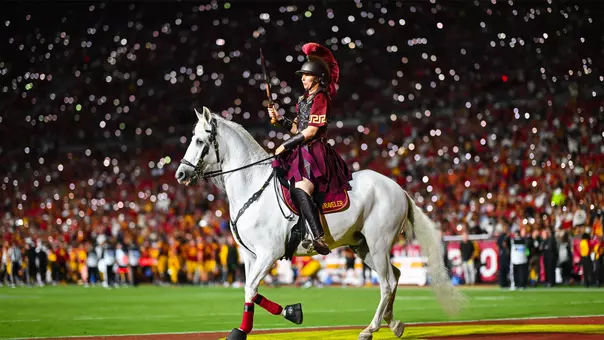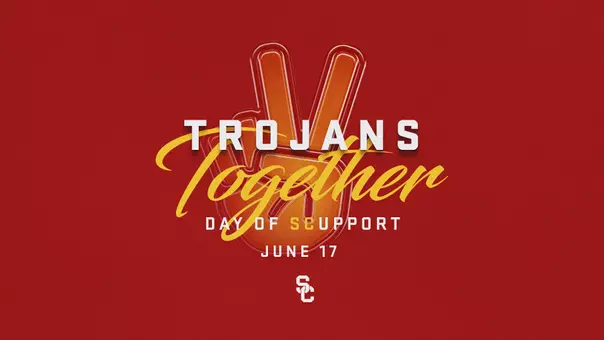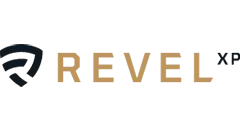University Southern California Trojans
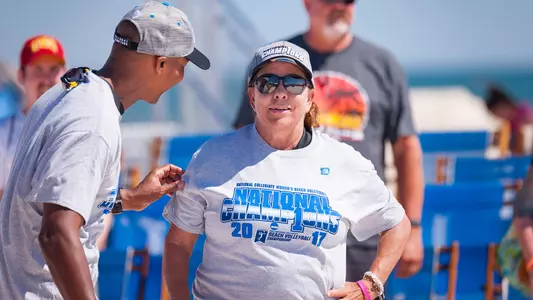
Where Are They Now: Anna Collier
November 12, 2021 | Trojan Athletic Fund
Anna attended USC on a Track and Field Scholarship. She started playing volleyball her junior year and was also a part of the swim team as a student in the 1970s, earning All-American honors in track. After graduating, Anna played professional beach volleyball for seven seasons, eventually coaching several professional beach volleyball players, such as Misty-May Treanor and Kerri Walsh. She also coached the USA Beach Volleyball team at the Olympics in Atlanta in 1996 and Sydney in 2000. Anna initially joined Santa Monica College as the head coach of women's cross country and track and field. Then she became the Women's Athletic Director.
Her record at USC was legendary. A two-time AVCA National Coach of the Year, Collier led the women's BVB team to three national titles in just eight years (2012-2019). The Women of Troy won three consecutive national championships and three Pac-12 crowns. The 2015 squad went 28-0, and she was the first head coach to reach 100, 150, and 200 victories. She coached USC pairs to four individual national titles, with Collier's players named All-Americans 20 times.
After retiring from USC in 2019, Collier signed on as the head BVB coach for Rolling Hills Prep School and maintains an active role in the CIF and NCAA legislation. She is also a partner of Beach VB Consulting, whose vision is to provide exceptional services for athletes, coaches, and organizers to pursue continuing development in the sport of beach volleyball.
What made you decide to be a coach?
I was always into sports as a child. We moved 13 times when I was in school, so I found sports a unifying factor. PE was a universal language. Being the new girl, I could shine in PE, and everyone wanted to be my friend. I could show leadership. In 7th grade, my teacher asked what I wanted to be when I grew up: I wrote I wanted to be a Southern California top D1 school head coach. That's when I knew.
What is different about being a coach versus a student-athlete?
Not all great student-athletes make great coaches. A head coach has to be a student of the game. It's challenging to translate skills into verbal knowledge. Unless you struggled as a student-athlete, it's hard to teach or explain how to execute different plans. I was never a phenomenal student-athlete, but when I spoke to my team, I understood the techniques behind the plays. You must have superior communication skills to be an effective coach.
What was something unique in the way you coached?
I would iterate the information in three ways: verbally say it, demonstrate it, and then have each individual execute the action. Once you do those three, everybody understands the skill, and then correcting is done by peers because they relate better and learn better from their fellow teammates, instead of me hammering down the information.
Do you believe there's as much to be learned in winning as there is in losing?
Absolutely. There are lessons to be learned: how did you win? Did you maintain your technique? That is a skill in itself. If you lose focus, winning can become losing in a heartbeat.
What is one of your favorite memories of being a student-athlete?
One of my favorites was when we were in T&F, and we qualified for NCAA in relays. We had to beat UCLA, and I was running the anchor, and I came from behind on the last leg; I just slid out and took off. It was a photo finish! That feeling of knowing this is cardinal and gold, this is USC, and that we just won, and all the other girls got to go to NCAAs because we won. That was an incredible experience.
And one of your favorite memories as a coach?
By far, as Beach Volleyball was an infant sport, I decided to put the same focus in, and we were going to win that first NCAA championship in this sport against UCLA no matter what. It was incredible - what a fantastic way to bookend my time at USC.
What about as an Olympic Coach?
Walking in opening ceremonies is like nothing else. It's breathtaking and makes you so proud to be an American. Wearing the USA team uniform, all the flags, you feel the pride and the greatness of the Olympics.
How much of the sport is mental? 90%. Get out of your own way. It takes time for the athletes to get out of their own way – how do you coach that?
Confidence comes from competency. When you are competent in your skills, that gives you competency. Playing repetitively and doing skills over and over gives you confidence, so that helps you get out of your own way.
Where do you see yourself down the road?
I will continue to develop high school players to be the best, most prepared student-athletes so they can be their greatest and most focused selves. I get so many rewards from working with teens, prepping them as much as I can so that they can perform at their highest level.

